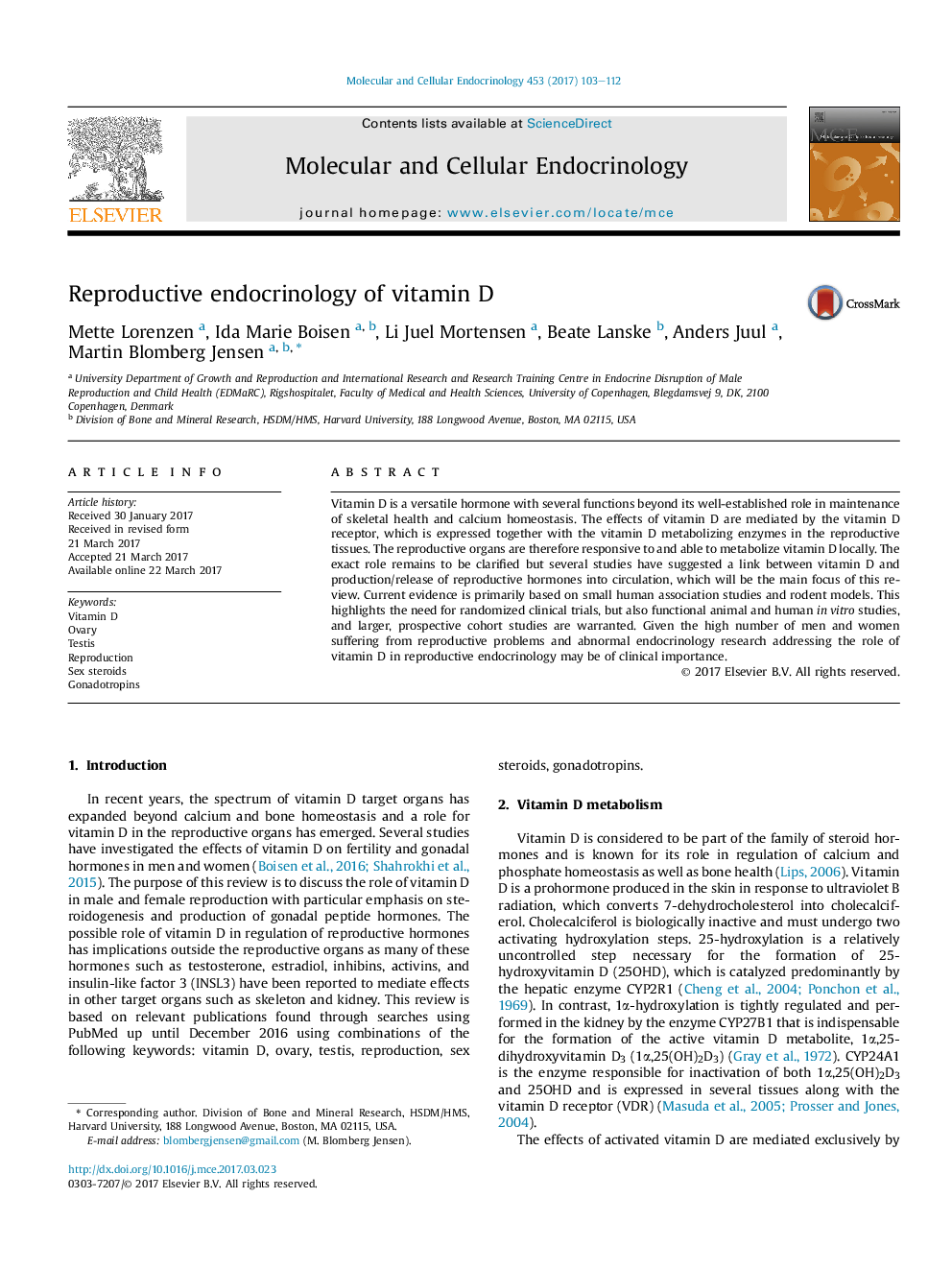| Article ID | Journal | Published Year | Pages | File Type |
|---|---|---|---|---|
| 5534055 | Molecular and Cellular Endocrinology | 2017 | 10 Pages |
â¢VDR and vitamin D metabolizing enzymes are expressed in human reproductive tissues.â¢Vitamin D deficiency is linked with impaired fertility/aberrant hormone production.â¢Mechanistic role for vitamin D in steroidogenesis and production of AMH and inhibin B.â¢Human evidence is sparse and based on observational data.â¢Randomized clinical trials/functional animal studies are warranted.
Vitamin D is a versatile hormone with several functions beyond its well-established role in maintenance of skeletal health and calcium homeostasis. The effects of vitamin D are mediated by the vitamin D receptor, which is expressed together with the vitamin D metabolizing enzymes in the reproductive tissues. The reproductive organs are therefore responsive to and able to metabolize vitamin D locally. The exact role remains to be clarified but several studies have suggested a link between vitamin D and production/release of reproductive hormones into circulation, which will be the main focus of this review. Current evidence is primarily based on small human association studies and rodent models. This highlights the need for randomized clinical trials, but also functional animal and human in vitro studies, and larger, prospective cohort studies are warranted. Given the high number of men and women suffering from reproductive problems and abnormal endocrinology research addressing the role of vitamin D in reproductive endocrinology may be of clinical importance.
